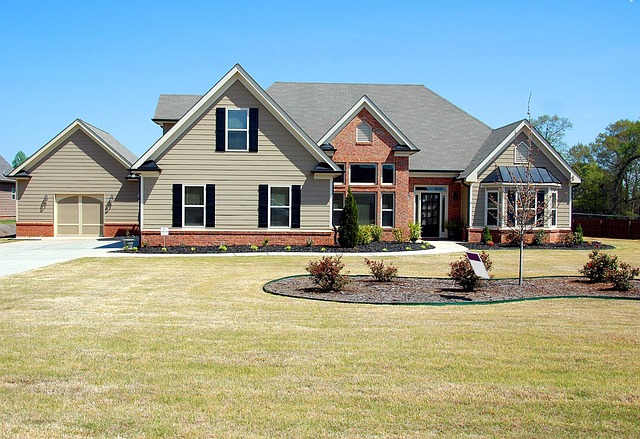How Home Value Is Calculated: Complete Guide for Owners
Learn how home value is determined and what drives property valuation. This comprehensive guide explains comparative market analyses, professional appraisals, and automated valuation models, plus key factors like location, size, condition, market trends, and upgrades that can raise your home's worth. Ideal for buyers, sellers, and homeowners seeking accurate valuation insights and practical tips to improve property value.

Understanding what determines a home’s worth helps you make smarter real estate decisions—whether you’re buying, selling, refinancing, or planning improvements. Home valuation combines objective data, local market dynamics, and subjective assessments of condition and features. The following guide breaks down common valuation methods, the primary factors that shape value, and practical steps homeowners can take to influence their property’s price.
How professionals estimate a home’s value
There isn’t a single formula that fits every situation, but professionals typically rely on three main approaches: comparative market analysis, formal appraisals, and automated valuation models.
-
Comparative Market Analysis (CMA): Real estate agents compile recent sales of similar nearby properties to create a neighborhood-based comparison. Agents adjust for differences in size, layout, number of bedrooms and bathrooms, upgrades, and condition to generate a suggested price range. CMAs are useful for listing strategy and initial pricing decisions because they reflect what buyers have recently paid in that market.
-
Appraisal: Licensed appraisers perform a systematic inspection and valuation. They review comparable sales, examine the property’s physical condition, consider its location and functional utility, and factor in current market trends. Appraisals carry weight in mortgage underwriting and legal or tax matters because they are conducted by credentialed professionals following standardized methods.
-
Automated Valuation Models (AVMs): Online tools and algorithms pull public records, recent sales, tax assessments, and other data to produce quick estimates. AVMs are convenient and fast, but they may miss recent renovations, neighborhood nuances, or interior condition details. They work best as a starting point rather than a definitive value.
Each method has strengths and trade-offs: CMAs reflect local market knowledge, appraisals offer formal credibility, and AVMs provide speed and accessibility.
Major factors that influence property value
Several consistent variables shape how much a home is worth. Understanding these can help you interpret valuations and prioritize improvements.
-
Location: This is often the most decisive element. Proximity to good schools, public transit, employment centers, parks, retail, and desirable neighborhoods typically raises demand and value. Local crime rates, future development plans, and zoning can also affect prices.
-
Size and usable layout: Total square footage and how efficiently that space is arranged matter. A home with flexible, well-planned living areas often commands more than a similarly sized house with awkward layouts or unusable spaces.
-
Age and condition: Newer construction or well-maintained properties tend to appraise higher. Deferred maintenance, outdated systems, or structural issues lower value. Thoughtful, recent renovations that align with buyer expectations usually add value.
-
Market conditions: Supply and demand, interest rates, employment trends, and broader economic factors influence prices. In a seller’s market with low inventory, comparable homes typically sell faster and at higher prices.
-
Special features and upgrades: Pools, high-end appliances, smart home systems, energy-efficient upgrades, and premium finishes can increase a home’s appeal. However, the return on those investments depends on local buyer preferences and comparable properties.
Why knowing your home’s value matters
-
For buyers: A clear valuation helps you craft competitive offers without overpaying. It also informs negotiation strategy and future resale expectations.
-
For sellers: Accurate pricing attracts the right buyers and reduces time on market. Overpricing can deter interest, while underpricing may leave money on the table.
-
For homeowners: Understanding value is essential when considering refinancing, taking out a home equity loan, or deciding which renovations will yield the best return.
-
For taxes and insurance: Property tax assessments and certain insurance considerations are often linked to valuation. Knowing the likely value helps you plan and contest inaccurate assessments if needed.
When to reassess your home’s value
There’s no single schedule for reassessment, but common triggers include: annual market reviews, significant neighborhood developments (new transport links or commercial projects), large renovations to your property, or major changes in interest rates and the broader economy. If you plan to sell, refinance, or tap equity, obtaining an updated professional valuation is wise.
| Service | Typical Cost | Notes |
|---|---|---|
| Comparative Market Analysis (CMA) | Usually free | Provided by agents to support listing strategy |
| Appraisal | $300–$700 (varies by market) | Formal, written valuation by a licensed appraiser |
| Automated Valuation Model (AVM) | Free–low cost | Instant online estimate; less precise |
Cost disclaimer: The prices above are estimates and can vary by region and provider.
Ways homeowners can influence value
-
Regular maintenance: Address roofing, plumbing, electrical, and structural issues promptly. Preventive upkeep preserves value and avoids costly future repairs that reduce buyer confidence.
-
Strategic renovations: Kitchens and bathrooms often deliver strong returns. Focus on durable, neutral finishes and improvements that align with local buyer tastes rather than niche customizations.
-
Boost curb appeal: First impressions matter. Landscaping, exterior painting, a tidy entryway, and functioning outdoor lighting can materially affect perceived value.
-
Improve energy efficiency: Upgrading insulation, windows, HVAC systems, or installing solar panels can appeal to eco-conscious buyers and lower long-term operating costs.
-
Smart, documented upgrades: Keep records, permits, and receipts for all improvements. Appraisers and buyers will factor verified upgrades into their assessments.
Final thoughts
Estimating a home’s value blends data, local insight, and professional judgment. Online tools are useful for quick checks, but for significant financial decisions—selling, refinancing, or borrowing against equity—seek a professional appraisal or an agent’s CMA for the most reliable figures. With a clear understanding of valuation methods and the factors that drive price, you can make informed choices that protect and potentially increase your property’s worth.






